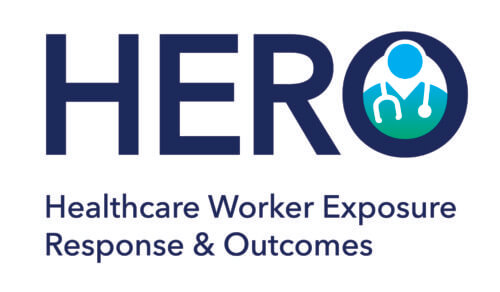As COVID-19 viral variants continue to spread, so too grows the population of those who experience COVID-19’s effects months after the acute illness has passed. Now two new manuscripts in Nature Medicine and JAMA Pediatrics show how the RECOVER initiative is using PCORnet®, the National Patient-Centered Clinical Research Network, to shed new light on who is impacted and how.
PCORnet: A key tool for RECOVER research
RECOVER research is funded by the National Institutes of Health and aims to understand why some people do not fully recover and develop long COVID. RECOVER brings together patients, caregivers, clinicians, community leaders, and scientists from across the nation and comprises multiple studies at institutions aligned toward this common goal.
PCORnet is a critical resource for RECOVER research because of the Network’s broad and deep data reach representing the everyday encounters of tens of millions of Americans. While most research to date has studied the signs and symptoms of long COVID independently, PCORnet enables a more holistic analysis that can shed light on trends around the condition’s diverse and complex presentations.
New characterizations of long COVID
A major challenge of long COVID is that it has been difficult to pin down how and why it presents across different patients. Now, a RECOVER study has used PCORnet to determine that adults with long COVID generally fall into four adult sub-groups (technically known as subphenotypes) based on the conditions they are diagnosed with following COVID. The results were published in Nature Medicine.
The team explored the electronic health records, or EHRs, of more than 34,000 COVID-positive patients across two PCORnet Clinical Research Networks: INSIGHT and OneFlordia+. By pairing PCORnet-leveraged data with machine learning analysis, the team assessed more than 130 symptoms and conditions before arriving at the following four subgroups that are reproducible, meaning another large-scale study would produce similar results:
- Patients with new conditions of cardiac and renal symptoms (75% of patients in INSIGHT and 25.43% of patients in OneFlorida+)
- Patients with new respiratory system, sleep and anxiety problems (75% in INSIGHT and 38.48% of patients in OneFlorida+)
- Patients with new musculoskeletal and nervous system problems (37% in INSIGHT and 23.35% of patients in OneFlorida+)
- Patients with new digestive and respiratory symptoms (10.14% in INSIGHT and 12.74% of patients in OneFlorida+)
These findings mark an important disease characterization milestone that could help clinicians and health systems develop more meaningful care models to meet the needs of patients with long COVID.
Long COVID in children
Another study surfaced several key insights about long COVID in children, which were recently published in JAMA Pediatrics. The retrospective cohort study used de-identified EHRs from more than 650,000 children across PEDSNet, a PCORnet Partner Network. All the children were under 21 years old, had previously been tested for COVID-19, and had visited a care provider within PEDSNet at least once in the three years before testing. The study found:
- The burden of pediatric long COVID that presented to health systems was low, meaning long COVID in children is fairly uncommon.
- Myocarditis was the most commonly diagnosed long COVID-associated condition in children, which differs from adults.
- Acute illness severity, young age, and comorbid complex chronic disease increased the risk of long COVID.
These findings suggest that while long COVID impacts both children and adults, it does not impact them in the same way. Future studies, including long-term prospective studies, are needed to more fully characterize trends around how long COVID plays out in different populations.

 The Healthcare Worker Exposure Response & Outcomes (HERO) Registry launched today, marking the first major milestone in a
The Healthcare Worker Exposure Response & Outcomes (HERO) Registry launched today, marking the first major milestone in a